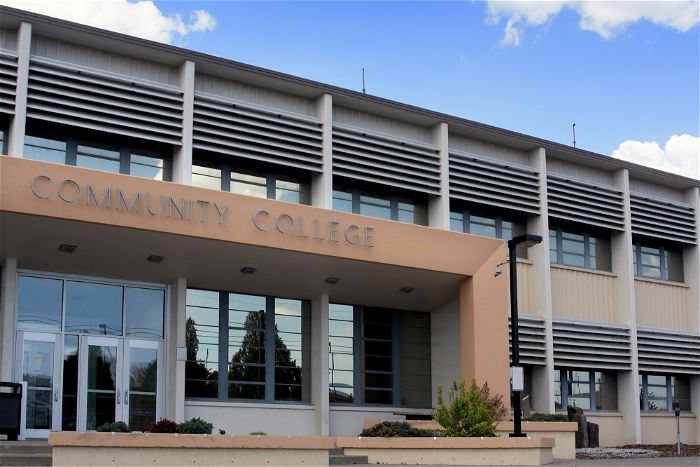
Dual Enrollment Means College for All — Almost
September 27, 2021
The need for accelerated and efficient learning pathways that both meet workforce demands, and offer students accessible options for postsecondary credentials has rarely been higher. One promising option is dual-enrollment high-school-to-college programs; research shows that enrolling high-school students in college-level coursesimproves their rates of college access and completion, and enables many students to earn a postsecondary credential by the time they graduate from high school. But although the value of these programs is evident and their popularity is growing, access to and engagement in these pathways is not distributed equitably.
The final episode of JFF’s podcast, When Policy Meets Practice, examines dual enrollment approaches and policy conditions that could close equity gaps and expand access to a wider range of learners. Host Paul Fain talks with two community college leaders serving on JFF’s Policy Leadership Trust: Marielena Desanctis, a former high school principal and now president of Community College of Denver, and Leigh Goodson, president and CEO of Tulsa Community College. At the end of the episode, JFF’s Erica Cuevas and Alex Perry of the College in High School Alliance join Paul to offer their insights.
Although the value of early college programs is evident and their popularity is growing, access to and engagement in these pathways is not distributed equitably.
Marielena kicks off the conversation by discussing how to offer high quality dual enrollment opportunities without discouraging learners; there’s a fine balance, she says, between holding students accountable and providing them a safe place to learn and feel confident in their ability to complete a college course. Varying state eligibility requirements and costs are the differentiating factors, and erode the ability to provide equity in the dual enrollment process. Instead, she says, the programs should be student-centered, minimizing loopholes and removing unnecessary barriers for students of color, English learners, and students currently experiencing poverty. “The easier we make it for the student, the better,” she says.
Leigh explains why states should support dual enrollment opportunities, describing Oklahoma’s EDGE (Earn a Degree Graduate Early) program, which offers students the opportunity to simultaneously earn an associate’s degree and a high school diploma, free of charge. Tulsa has had great success in engaging students in its EDGE program: the institution begins recruiting in the eighth grade, targeting first-generation students. From there, students prepare in the ninth grade, begin college-level courses in the tenth grade, and take a full slate of college-level courses during their junior and senior years. Family engagement is critical to the program’s success, as are robust wrap-around supports to keep students engaged and motivated. To improve dual enrollment programs like EDGE, Leigh concludes, policymakers should look at the statewide structure for how dual enrollment is delivered and reimbursed, and assess who’s responsible for delivering and sustaining support across K-12 and higher education.
There’s a fine balance, she says, between holding students accountable and providing them a safe place to learn.
A Deeper Dive Into Dual Enrollment Policy
JFF’s Policy Leadership Trust has developed practitioner-informed policy design principles for dual enrollment programs, available in this 2019 policy brief. Additionally, the College in High School Alliance offers this valuable resource: Unlocking Potential: A State Policy Roadmap for Equity and Quality in College in High School Programs.
How to Listen to Episode 8 of When Policy Meets Practice
Tune in to the eighth episode of JFF’s When Policy Meets Practice podcast to hear Paul Fain discuss policy approaches to strengthen dual enrollment and expand equitable access for learners with postsecondary leaders Marielena DeSanctis and Leigh Goodson, and then wrap things up with JFF’s Erica Cuevas and the College in High School Alliance’s Alex Perry. The episode is now available on your favorite podcast platforms, using this shortcut.
Related Content

When Policy Meets Practice Podcast Series
Series Trailer Paul Fain previews the podcast series, and JFF’s Lexi Barrett explains why policymakers should incorporate the views of on-the-ground practitioners in their policy strategies. Episode 10: Career Navigation Policy and Best Practices for…






